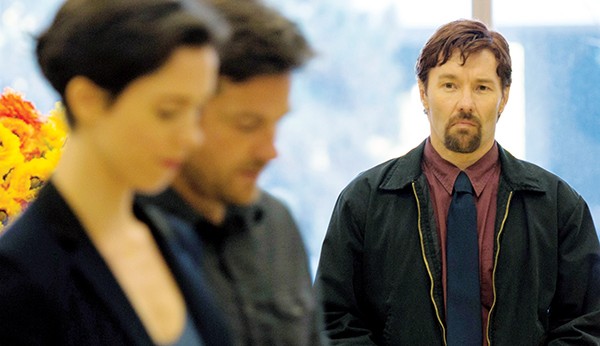When Disneyland opened in 1955, the first thing throngs of visitors encountered was Main Street, U.S.A., Walt Disney’s sanitized, safe, and, ultimately, utopian vision of America as a small, Midwestern town where everyone was happy — everyone who mattered, anyway.
Disney’s fortunes have waxed and waned over the years, and its vaunted animation division that produced timeless masterpieces such as Fantasia, Pinocchio, and The Jungle Book fell into disrepair. In the early 1990s, a young animator named John Lasseter championed computer animation as the House of Mouse’s way back to the forefront and was canned for his troubles. Fortunately for everyone, he attracted the attention of Pixar, the animation production house Steve Jobs cobbled together from the remnants of George Lucas’ computer graphics division, and went on to define the zeitgeist, starting with Toy Story, until Disney finally threw in the towel and bought its rival outright 10 years ago.
Lasseter is now the head of the animation division he was once run out of, and so, with Star Wars and Marvel properties defining the pop-culture landscape and acting as an ATM for the company, it’s his job to articulate Walt’s utopian message for the uncertain 21st century. Disney did not release budget numbers for Zootopia, but Variety estimates there’s upwards of $100 million invested in this ambitious spectacle. The talent in the director’s chair(s) is about as impressive as it gets in the animation world. Byron Howard’s been with the studio since Mulan, more recently helming Tangled. Rich Moore was the director for some of The Simpsons’ greatest episodes, including “Lisa’s Substitute,” “Marge vs. the Monorail,” and “Cape Feare.” The vision of ideal America they conjure in Zootopia is tolerant, kind, rational, but not perfect — and all the stronger for it.
We get the backstory for the human-free world of Zootopia from its hero, a rabbit named Judy Hopps (Ginnifer Goodwin), one of 275 brother and sisters growing up on a carrot farm in the Bunny Borough. The animals abandoned nature red in tooth and claw and built a multispecies civilization based on mutual respect and not eating each other. The sprawling capitol is Zootopia, a city with excellent public transportation where “anyone can be anything.” But, like America, Zootopia doesn’t always live up to its highest ideals, and Judy’s ambition to be a police officer is unlikely, since the force is dominated by African megafauna. But Judy perseveres and makes history with the help of Mayor Leodore Lionheart’s (J.K. Simmons) diversity program. But, as with many ambitious trailblazers, she runs up against institutional roadblocks, here with the face of a water buffalo named Bogo (Idris Elba), who assigns her to meter-maid duty. But when she’s confronted by the frantic wife of a missing otter (Octavia Spencer), she gets 48 hours to solve the mystery, which may be related to a wave of AWOL animals across the city. Along the way, Judy must confront not only prejudice against her as a she tries to break into the formerly bunny-less world of animal law enforcement, but also her own prejudices against others, such as Nick Wilde (Jason Bateman), a con artist fox, whom bunnies — including Judy’s own parents — still regard with suspicion as their most-feared former natural enemy.
Zootopia‘s most ingenious move is mining the 1982 Walter Hill film 48 Hrs. for its main character dynamic — only in this case, Nick Nolte is a bunny, and Eddie Murphy is a fox. When the unlikely pair’s investigation inadvertently inflames the city’s long-dormant predator/prey tensions, the parallels to to the human world couldn’t be more clear to the adults in the audience.
Goodwin, a Memphian whose voice-acting experience began with Robot Chicken, gives vibrant life to Judy, Zootopia‘s breakout star who is destined to enter the pantheon of Disney characters next to Bambi and Dumbo. From her on down, characterization is Zootopia‘s biggest strength. All of the bit players are good, including the legendary Maurice LaMarche doing his Marlon Brando imitation as Mr. Big, the shrew godfather of Tundratown, Tommy Chong as a nudist yak, and Raymond Persi, who gives a show-stopping performance as a sloth in charge of the DMV. The animation is the equal of any recent Pixar feature, with a wealth of jokes delivered through simple attention to detail.
Zootopia‘s message of tolerance and respect comes at a perfect time for the human world wracked by renewed racial divisions drummed up by marauding demagogues. Disney always strove to base his vision of America on the better angels of our nature, and with Zootopia, the company he founded has succeeded.
Zootopia
Now playing
Multiple locations
